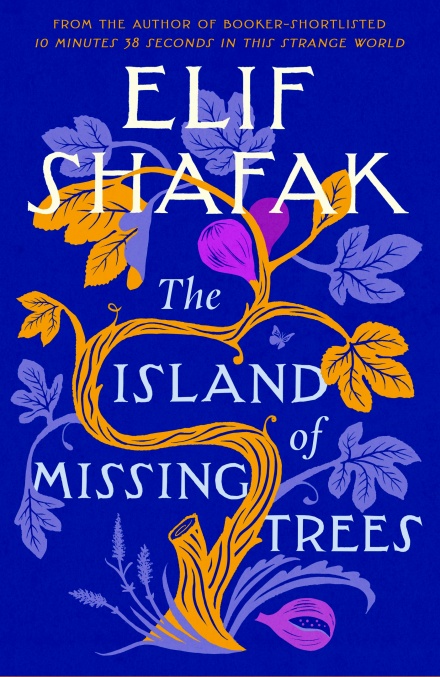I really enjoyed There are Rivers in the Sky. I leapt at the opportunity to read this one.
Here is the blurb …
A rich, magical new book on belonging and identity, love and trauma, nature and renewal, from the Booker shortlisted author of 10 Minutes 38 Seconds in This Strange World.
Two teenagers, a Greek Cypriot and a Turkish Cypriot, meet at a taverna on the island they both call home. In the taverna, hidden beneath garlands of garlic, chili peppers and creeping honeysuckle, Kostas and Defne grow in their forbidden love for each other. A fig tree stretches through a cavity in the roof, and this tree bears witness to their hushed, happy meetings and eventually, to their silent, surreptitious departures. The tree is there when war breaks out, when the capital is reduced to ashes and rubble, and when the teenagers vanish. Decades later, Kostas returns. He is a botanist looking for native species, but really, he’s searching for lost love.
Years later a Ficus carica grows in the back garden of a house in London where Ada Kazantzakis lives. This tree is her only connection to an island she has never visited — her only connection to her family’s troubled history and her complex identity as she seeks to untangle years of secrets to find her place in the world.
A moving, beautifully written and delicately constructed story of love, division, transcendence, history and eco-consciousness, The Island of Missing Trees is Elif Shafak’s best work yet.
First, I knew nothing about Cyprus and the Greek and Turkish struggle over it. The writing is beautiful – how does someone write so well in a second language? I particularly enjoyed the chapters from the point of view of the fig. The story moves around in time, so what you think you know about the characters turns out to be a false assumption. We get to knows the characters slowly, like what would happen if you meet them in person. Ada’s mother has died, then we understand her mother was unwell, then that she drinks too much, and finally that her death might have been suicide.
Some of my favourite quotes
A map is a two-dimensional representation with arbitrary symbols and incised lines that decide who is to be our enemy and who is to be our friend, who deserves our love and who deserves our hatred and who, our sheer indifference.
Her voice was like a flying carpet that lifted her up and carried her against her will.
Because that is what migrations and relocations do to us: when you leave your home for unknown shores, you don’t simply carry on as before; a part of you dies inside so another part can start all over again.
If families resemble trees, as they say, arborescent structures with entangled roots and individual branches jutting out at awkward angles, family traumas are like thick, translucent resin dripping from a cut in the bark. They trickle down generations.
You don’t fall in love in the midst of a civil war, when you are hemmed in by carnage and by hatred on all sides. You run away as fast as your legs can carry your fears, seeking basic survival and nothing else. With borrowed wings you take to the sky and soar away into the distance. And if you cannot leave, then you search for shelter, find a safe place where you can withdraw into yourself because now that everything has failed, all diplomatic negotiations and political consultations, you know it can only be an eye for an eye, hurt for hurt, and it is not safe anywhere outside your own tribe.
Because in real life, unlike in history books, stories come to us not in their entirety but in bits and pieces, broken segments and partial echoes, a full sentence here, a fragment there, a clue hidden in between,
It’s a beautiful, engrossing story full of hope and love, but also sadness and acknowledgement of the terrible things people do to one another.
A review


